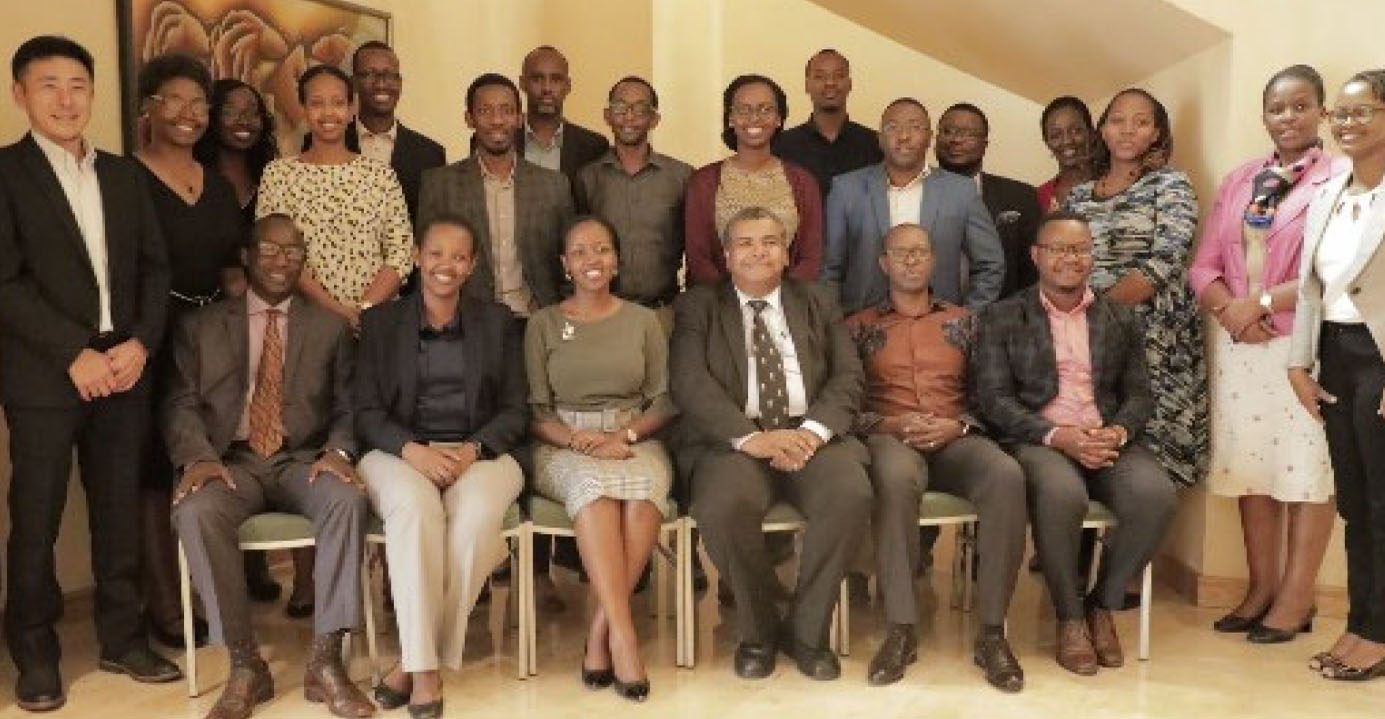Imihigo – Performance Contract
IWATA Shoichi
Technical cooperation project expert (Republic of Rwanda)
I previously reported on Rwandan young leaders. This is the report on the evaluation method for civil servants of Rwanda.
Rwanda, after falling into national crisis by the genocide in 1994, has been making rapid economical growth since 2000, by the strong leadership of President Kagame. At the same time, the country has realized the less corruption, which led to the high evaluation of governance as ranked 51st place in the world. (Japan as 20th place). In my opinion, the numbers of new buildings and new cars seem increasing, but the society may have not developed as economical growth when I see many people with insufficient personal income and purchasing power, and without job. Well, it is refreshing surprise that lesser people ask me to lend money than those in the countries I worked so far.
Anyway in Rwanda, the corrupted people are arrested for both giving and receiving even one yen, and their names and the criminal details are reported in the newspaper. It seems true that this works as a deterrent and decreases corruption. My home country Japan, on the contrary, corruption never goes away to protect personal interests. The corruption in Japan consists of congresspersons and civil servants who depend on taxes obtained by rights and interests, and of corporate executives and some organizations who make profit from sweet fruits by this. While I write this, I’d be disappointed myself that I’m not contributing the society because I’ve never experienced to receive sweet fruits such as entertainment, interests, bunch of money, or honey traps. (If I can go more specifically, I’m a man in 50s with no experience of gorgeous restaurants and clubs in Ginza, green seat of Shinkansen, etc. I’m pathetic…oops, let me go back.)
In the previous report, I wrote about appointment of young human resources to major posts such as ministers. In fact, because of ability-oriented principle, change and replacement often take place unless they don’t perform as expected. There is the system for not only ministers but also civil servants including president to strictly be evaluated the work result. It is the system of “Imihigo”, launched in 2006, that ministers swear their work objectives and outputs to the President, and that civil servants swear the work outputs to their supervisors. The result is evaluated every year, and they are changed if they didn’t show the outputs. But they are highly awarded when they perform as sworn, so we can say it is very clear meritism. This makes Rwanda, where the result tells everything by ability-oriented principle, a strict and easy-to-understand country. I prefer people who come up with constructive alternatives to those who only criticize. Oh, I went off the story, so let me go back to the main topic.
By the Imihigo, I’ve got the impression that the Rwandan ministers and the civil servants try to fulfill their roles and duties properly, compared with the countries that I have stayed so far. Also, they are arrested by the strict law against corruption even for 1 yen, and the President has sent a strong message that he never tolerates any disadvantages to the nation. I feel that this strict environment is important because Rwanda has been recovering from the damage by the genocide.

The work of the project sometimes gets stuck during Imihigo evaluation time, because the CPs in the project are occupied by report making to reflect the project outputs in it. During my stay in Rwanda on reconstruction, I thought this system has given the trigger for the people to be motivated and be responsible for the work. I also thought that the project outputs could be applied to the Imihigo for the CPs, because it would motivate them. I’d like to suggest those who will be dispatched to Rwanda to make use of this system.